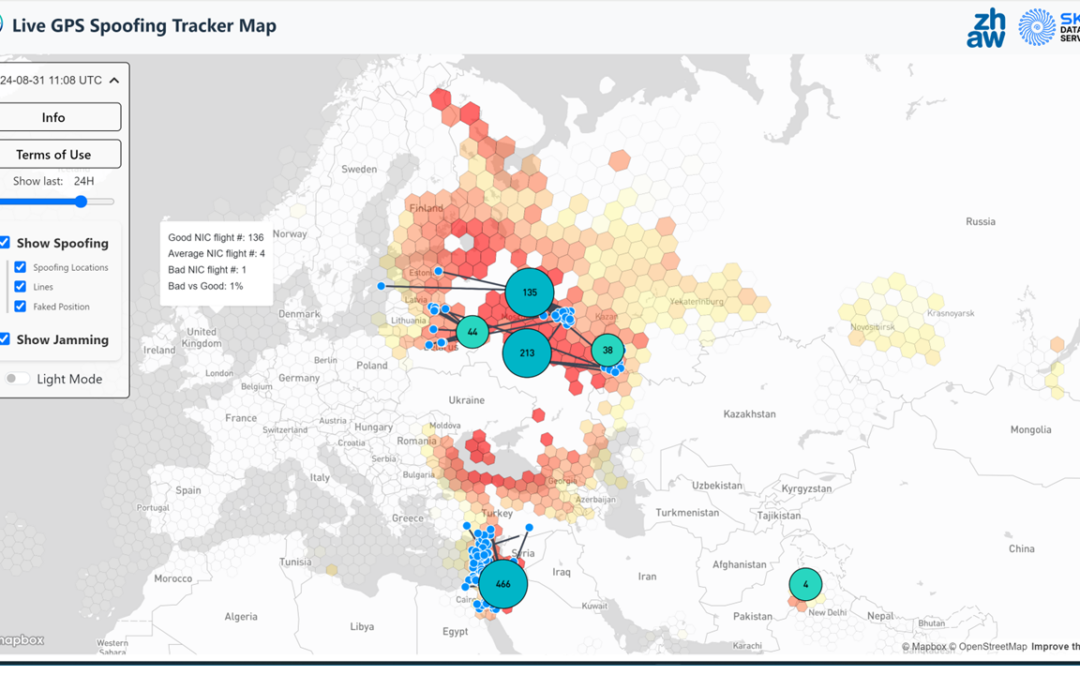Image: SKAI Data Services, 31 Aug 2024
What’s New: An article by Mr. Roboto, an AI program. This is the second time we have posted something written by AI... as far as we know… The first was what we got when we asked Microsoft’s co-pilot AI to write three paragraphs.
Why It’s Important: We are not AI experts, but the way we understand it, the bot searches the internet for information, collates and organizes it for publication. So this is an interesting view of what might be the internet’s general consensus.
What Else to Know:
- It seems to us to be a pretty good summary. We were impressed by the tables and other ways the info was formatted for easy reading.
- The only thing we might take a bit of exception to is the list of alternative technologies.
- It makes sense that AI put eLoran is at the top of the list. It is in use in so many places around the world already, and for almost 20 years the U.S. government identified it as the intended/preferred backup for GPS.
- Listing the other GNSS as backups to GPS, though, is technically OK. But as most of our readers know, they generally have the same vulnerabilities as GPS.
- We would have liked to see fiber, LEO PNT, and other terrestrial broadcast tech also listed. But hey, it’s Mr. Roboto and he is new to the topic…

Vulnerable GPS Systems Are Being Attacked Daily
Discover the risks of GPS dependency and its potential exploitation by adversaries. Understand why Western nations need to bolster this critical infrastructure’s safeguards.
RAPID TECHNOLOGICAL ADVANCEMENTS • CYBERSECURITY
Mr. Roboto
8/19/2024
Uber drivers, truckers, and moms use it. Airplanes, ships, and gym rats, too.
From navigating city streets to coordinating complex military operations, GPS has become an integral part of our world. It’s easy to take this sophisticated technology for granted, but it could also become our Achilles heel.
Fragile GPS Vulnerability
Global Positioning System (GPS) technology is ubiquitous in the modern world. It helps you find your way during a road trip, enables the precision of commercial air travel, and plays a pivotal role in various critical infrastructures. However, the resilience of GPS systems, particularly in the West, is a growing concern for security experts. Understanding the fragility of these systems and the potential risks they pose is crucial.
The Ubiquity of GPS
It’s hard to imagine a time before GPS was integrated into so many aspects of life. It’s used everywhere from navigation apps on your smartphone to coordinating complex operations in industries such as shipping and logistics. This technology’s widespread use underscores its importance, but it also highlights how reliant society has become on its seamless functioning.
Vulnerability to Interference
Despite its many benefits, GPS technology has significant vulnerabilities. The signals it depends on can be easily disrupted through jamming and spoofing. Jamming involves overwhelming the receiver with noise, rendering the GPS signal unusable. Spoofing goes a step further, tricking the receiver into calculating false positions. These vulnerabilities are not just theoretical; they have been demonstrated in various studies and real-world scenarios.


